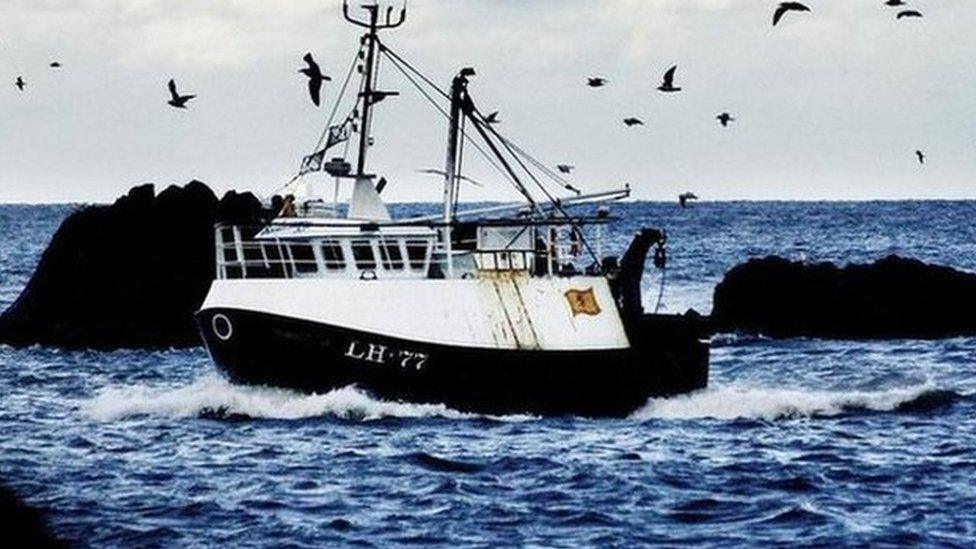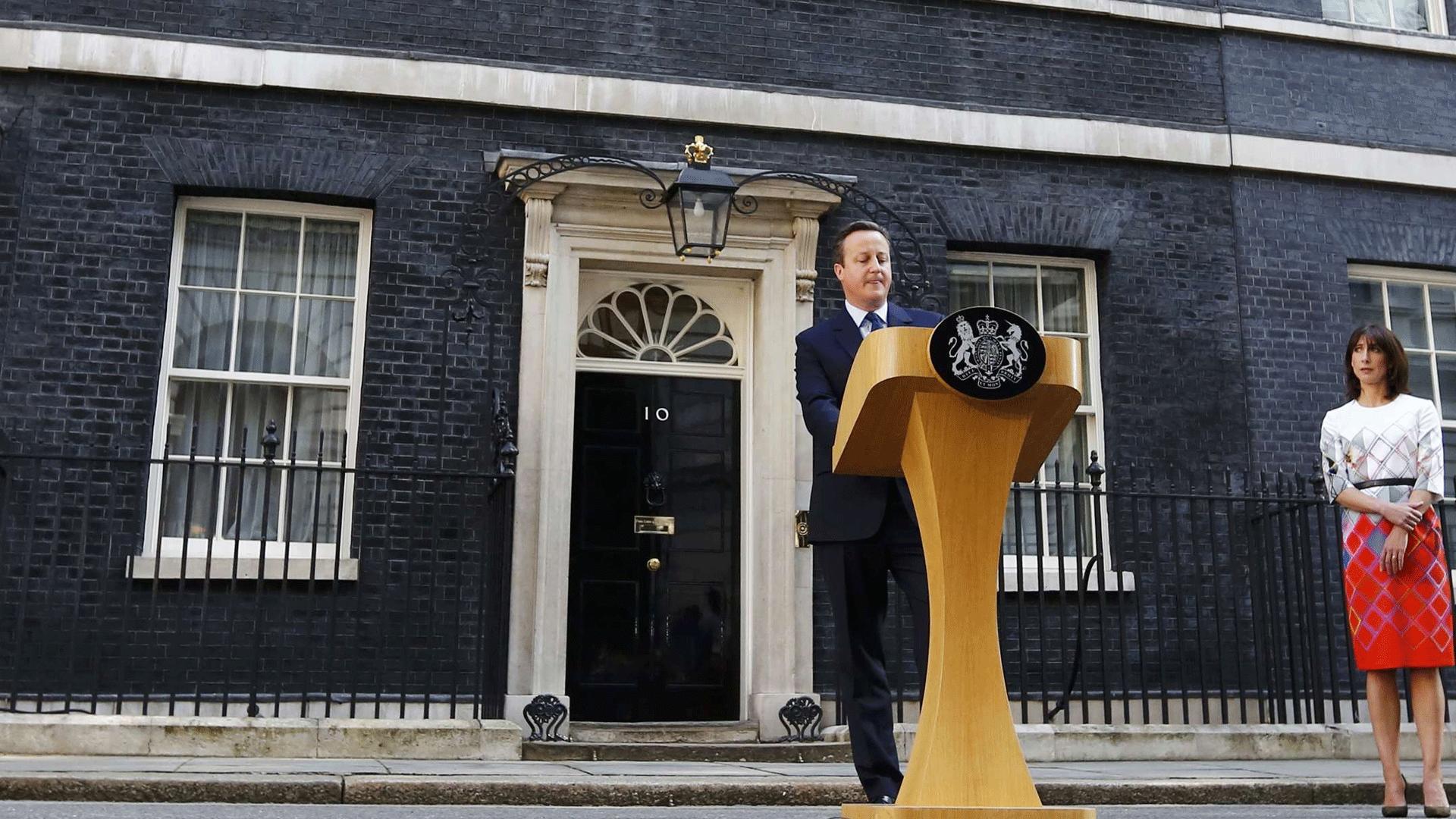EU referendum: Scottish businesses call for swift action
- Published

Scottish business leaders have called for swift political action to end uncertainty in the wake of the UK's vote to leave the EU.
Scotch whisky's industry body said the nature of future trade arrangements required "urgent attention".
Fishing industry leaders urged clarity from the UK and Scottish governments on their future intentions for fishing.
And the Federation of Small Businesses (FSB) said "decision-makers" should focus on economic stability.
The EU referendum was won by the Leave side by a margin of 52% to 48%, although Scotland voted in favour of remaining by 62% to 38%.
'Significant uncertainty'
Reacting to the result, Scotch Whisky Association chief executive David Frost said: "The process of leaving the EU will inevitably generate significant uncertainty.
"Of course, we are confident Scotch whisky will remain the pre-eminent international spirit drink.
"But equally, there are serious issues to resolve in areas of major importance to our industry and which require urgent attention, notably the nature of future trade arrangements with both the single market and the wider world."

SWA chief executive David Frost said there were "serious issues to resolve" for the whisky industry
Drinks giant Diageo said it would "now work closely with our industry bodies to seek clarity on the transition process".
A spokesman added: "It is a priority that the UK continues to benefit from open access to the EU as well as favourable international trade agreements to protect the UK's important export industries, including Scotch whisky."
Perth-based energy giant SSE said the referendum result presented "no immediate risk to how SSE serves its customers or to the investment that it continues to make in order to fulfil its core purpose".
However, it added: "The level of risk may, however, increase if the vote to leave leads to a prolonged period of uncertainty about the legislative or regulatory framework that SSE operates within."
Investor confidence
Sir Ian Wood, a senior figure in the oil and gas industry, said it was important that investor confidence was maintained if the sector were to avoid taking a hit from the decision to leave the EU.
The businessman said reassurances from financial institutions suggested it was unlikely there would be a fundamental change to their commitment to energy firms.
But he warned that economic uncertainty, and the difficulties already facing the North Sea sector, could make investors cautious.
Scottish Fishermen's Federation chief executive Bertie Armstrong said: "The result of the referendum brings both opportunities and challenges for the fishing industry and the Scottish Fishermen's Federation will be doing everything in its power to ensure that the best possible deal is achieved for fishing during the exit negotiations.
"To aid this process, it is vital that we have clarity from both the UK and Scottish governments on their future intentions for fishing."

Scottish fishermen called for clarity from the UK and Scottish governments on their future intentions for the industry
The Fraser of Allander Institute at the University of Strathclyde - a leading economic forecaster - warned the EU referendum result would have major implications for the Scottish economy over the short and longer term.
Institute director Prof Graeme Roy said: "The weight of academic evidence published prior to the vote concluded that, as a result of both an immediate increase in macroeconomic uncertainty and the reduction in trade and investment over the months and years ahead, unemployment would be higher, inflation higher, output lower and the public finances weaker as a result of a decision to leave the EU.
"As a small open economy, with significant trading links to Europe (with over £11.5bn of exports each year), we cannot expect Scotland to be immune from these challenges.
"Some sectors, businesses and households will face a particularly difficult few months."

Scottish Chambers of Commerce called for businesses to remain calm in the aftermath of the vote.
Chief executive Liz Cameron said: "We would urge a level of calmness - our products and services will continue to be traded throughout Europe and beyond.
"The priority for Scotland now is for our governments and businesses to carry on and show great leadership in order to stabilise the markets and begin to plan our new relationship with Europe."
The FSB's Scottish policy convener, Andy Willox, said: "Scottish smaller businesses now need decision-makers to focus on economic stability.
"While questions about a second independence referendum will inevitably dominate the headlines, there are more immediate matters for small firms - from clarity over access to the single market to the free movement of people."
'Far from straightforward'
Paul Brewer, from business adviser PwC Scotland, said business had "many questions to address" following the referendum.
He added: "Leaving the EU is, however, far from a straightforward process.
"We still do not know the precise form that exit will take, but what we do know is that change is unlikely to be immediate for anyone.
"Of course, one thing is certain in the aftermath of the vote to leave: the vast bulk of delivery of public services will need to continue on a day-to-day basis in parallel with Brexit negotiations, which will add a degree of further uncertainty to continuing fiscal austerity."
'Sense of shock'
The body for finance professionals, ICAS, said the result would "create a sense of shock in Britain's boardrooms".
Chief executive Anton Colella added: "What we need now is for the government to act swiftly and decisively to bring clarity to key questions for business which were never answered during the campaign."
The Institute of Directors in Scotland's executive director David Watt said: "It is now crucial that the transition out of Europe is handled as smoothly as possible, and that stability is maintained in the meantime.
"What business leaders need is a combination of calm and clarity, which will assist them in getting on with business during the weeks and months to come, alongside establishing a new basis for relationships with our international partners."
Scottish Trade Union Congress (STUC) general secretary Grahame Smith said it was a "desperately disappointing" result.
He added: "The economic consequences are likely to be severe with a significantly detrimental impact on Scottish jobs and investment.
"With growth currently very weak and employment falling rapidly, the now unavoidable extended period of uncertainty is the last thing the Scottish economy needs."
- Published24 June 2016

- Published24 June 2016
